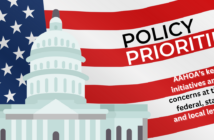The travel and tourism industry has endured the brunt of the nation’s economic fallout for months, and lawmakers in Washington are exploring industry-specific measures to get businesses and local communities back on their feet. As the White House and Congress discuss proposals for the next phase of COVID-19 relief, decision makers are debating policies to revitalize domestic travel. One initiative touted by the White House and Republican Senator Martha McSally (R-AZ) is a nonrefundable tax credit for expenses related to travel and entertainment. This proposal is largely backed by members of the travel industry, but there are many critics who deem that a travel tax credit’s focus is too narrow and its timing too early.
THE TAX CREDIT DISCUSSION
The conversation on domestic travel tax credits hones in on two very similar proposals: the White House’s “Explore America” tax credit and the American Tax Rebate and Incentive Program (TRIP) Act sponsored by Sen. McSally. President Trump discussed the Explore America initiative during a May roundtable featuring representatives from the restaurant industry, and Sen. McSally introduced the American TRIP Act, which expanded upon the White House’s proposals, in late June. Sen. McSally’s legislation proposes a nonrefundable tax credit for American households through 2022 to cover expenses related to domestic travel provided that the person ventures more than 50 miles from their home. The American TRIP Act would reimburse expenses spent on lodging, travel, and entertainment.
WHAT THIS MEANS FOR AMERICAN HOUSEHOLDS
As currently written, these tax credits are not a direct stimulus payment, so Americans won’t get $4,000 per person (up to $8,000 plus per household) in travel expenses deposited into their bank accounts. Rather, any expenses incurred would be refunded when one files their taxes next year, provided that they reach the tax credit’s spending requirements. Americans looking to cash in on the rebate would also need to have a positive income-tax burden, so households reluctant to spend their disposable income on travel may avoid using the program altogether.
THE TRAVELER’S PERSPECTIVE
Travel and tourism related businesses are grappling with the public’s willingness to travel, especially as COVID-19 cases spiked in states across the country in early July. According to a survey commissioned by the American Hotel and Lodging Association, 44 percent of Americans are planning to take an overnight vacation or leisure trip at some point in 2020. While this survey signals American’s willingness to travel, skeptics of the travel tax credit question the timing of the proposal amidst rising cases in the U.S., fearing that incentives to travel could undermine efforts to contain the virus. As an alternative, lawmakers in Congress are calling for direct assistance to the heavily impacted economic sectors, favoring zero-interest loans and other measures to help businesses experiencing drops in revenue to weather the pandemic without shuttering the doors. Congress has signaled its reservations to include a tax credit in the next phase of economic stimulus, but travel tax credits will be a vital component of future legislation to assist the long-term recovery of the travel and tourism industry.




